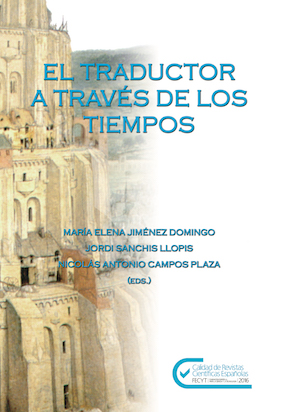The translator of non-literary texts in the 18th and 19th centuries: encyclopedists, innovators and transmitters of knowledge
DOI:
https://doi.org/10.7203/qfilologia.21.9319 Abstract
Abstract
Translations of scientific texts played an important role in the development of the sciences in Spain during the second half of the 18th and the first half of the 19th century. We will concentrate on translators that contributed to the spreading of scientific knowledge. A prominent example here is the progressive publication of the translation of the Encyclopédie méthodique from 1788, undertaken with the goal of advancing in particular Spain’s development in economic matters. French chemistry texts were also frequently translated, such as Lavoisier’s Mémoire sur la nécessité de réformer et de perfectionner la nomenclature de la chimie (1787). The translators also discussed the best solutions for making translations suited to the genius of the Spanish language and they saw themselves as encyclopaedists, innovators and transmitters of knowledge.
Keywords: terminology; translation; adaptation; analogy; denomination.
 Downloads
Downloads
Downloads
Published
How to Cite
-
Abstract510
-
PDF (Español)598
Issue
Section
License
 Este obra está bajo una licencia de Creative Commons Reconocimiento-NoComercial-SinObraDerivada 4.0 Internacional.
Este obra está bajo una licencia de Creative Commons Reconocimiento-NoComercial-SinObraDerivada 4.0 Internacional.
Authors who publish with this journal agree to the following terms:
- Authors retain copyright and grant the journal right of first publication with the work simultaneously licensed under a Creative Commons Attribution License that allows others to share the work with an acknowledgement of the work's authorship and initial publication in this journal.
- Authors are able to enter into separate, additional contractual arrangements for the non-exclusive distribution of the journal's published version of the work (e.g., post it to an institutional repository or publish it in a book), with an acknowledgement of its initial publication in this journal.
- Authors are permitted and encouraged to post their work online (e.g., in institutional repositories or on their website) prior to and during the submission process, as it can lead to productive exchanges, as well as earlier and greater citation of published work (See The Effect of Open Access).



